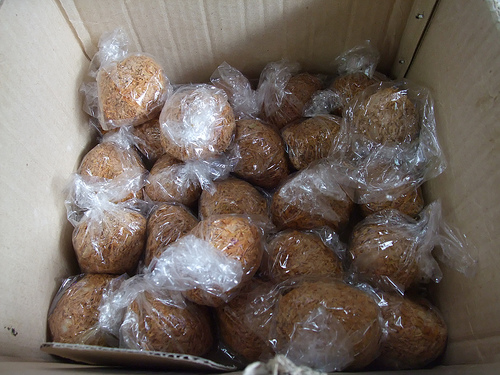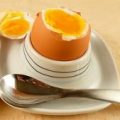This simple procedure adds value as well as extending the shelf life of duck eggs. Century eggs are a very popular traditional Chinese delicacy, served as an appetizer or as a condiment for some dishes.

What Is a Century Egg ?
Pidan (Chinese) or alkalized egg is a traditional Chinese delicacy made from either duck or chicken eggs. These are often called thousand-year or century-old eggs, even though the preserving process lasts only about 30 days. Eggs are soaked in a saline solution (for 15 days in summer or 20 days in winter). No boiling is needed. To check eggs for cracks, test according to the sound of eggs knocked gently against each other. Good eggs give off a higher pitch. Ammonia (NH3) is sometimes emitted, which has a pungent smell.
How to Make Century Eggs
- 1. Preparing the pickling solution:
- Water 1L
- Sodium chloride(NaCl) 72g
- Sodium hydroxide(NaOH) 42g
Dissolve the NaCl and NaOH completely in water. Bring the solution to a boil and allow it to cool down before use.
- 2. Submerge the eggs in the saline solution, and store at 15 to 20oC for about 10 days.
- 3. Pick out the pickled eggs and rinse them. Then allow them to dry naturally.
- 4. Coat with PVA (polyvinyl acetate) or some other non-ventilated packaging material. An alternative is to add red soil to the saline solution after the pickled eggs are removed. Coat the eggs with the mud, and roll them in rice husk. Age for about 2 weeks.
- 5. Crack the eggs lightly and remove the shell. The white of the egg will have a grayish, translucent color, and a gelatinous texture. The yolk, when sliced, will be a grayish-green color.
- 6. To serve, cut into wedges and serve with bean curd (tofu) as an appetizer, or as a condiment for dishes such as rice gruel (congee).
Caution
Numerous entrepreneurs have successfully adopted this technology. However, the market demand for century eggs may be low in some areas. Promotional activities may be helpful. Ammonia (NH3) is sometimes emitted, especially from cracked eggs, which has an unpleasant smell.
Source of information:
Century egg: Taiwan Livestock Research Institute. Council of Agriculture,
No.112 Farm Rd., Hsin-Hua, Tainan 712, Taiwan ROC., 2001-07-01
Agnet.org






